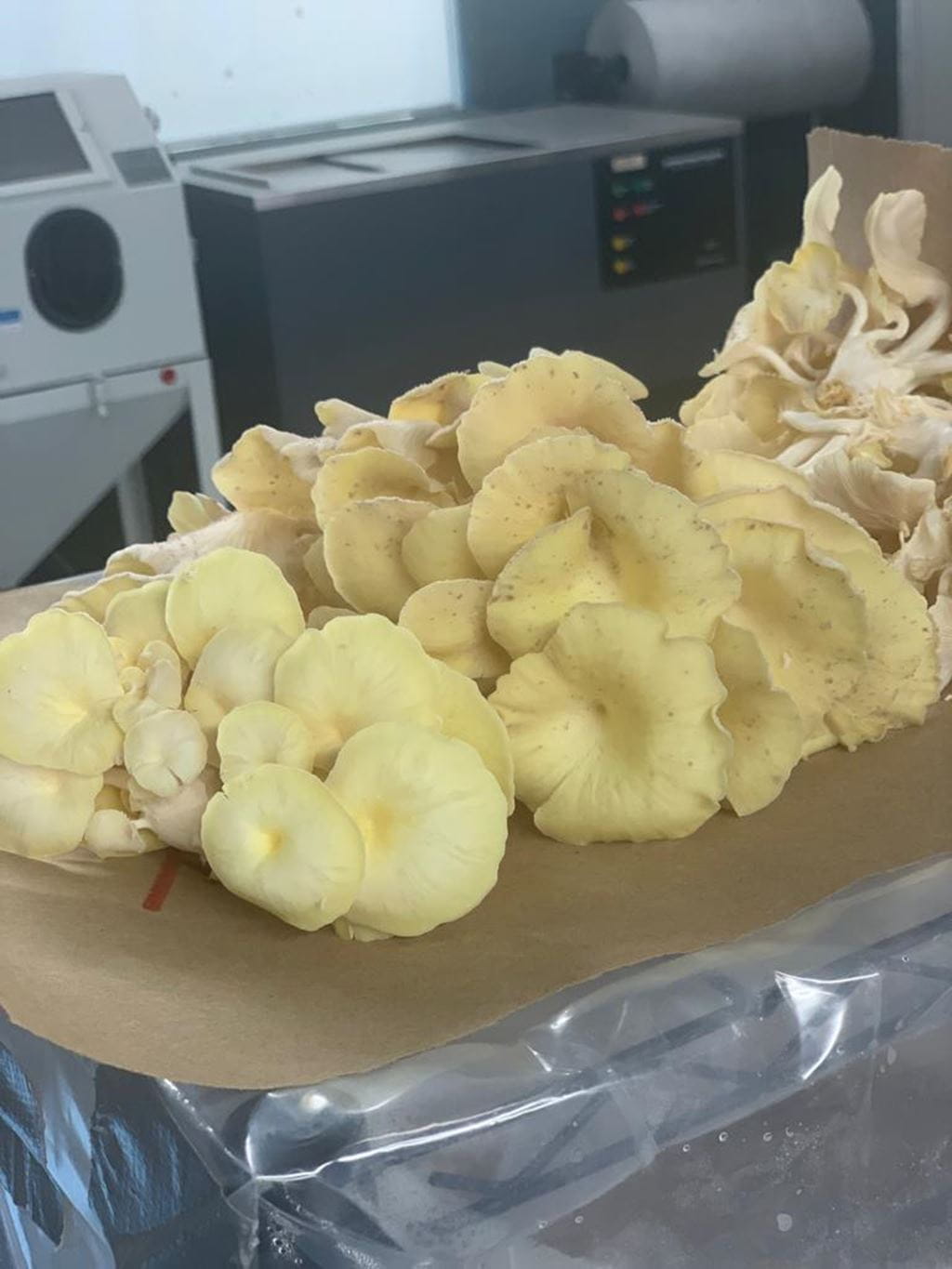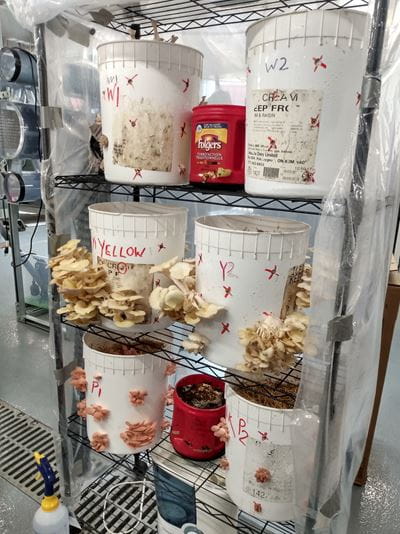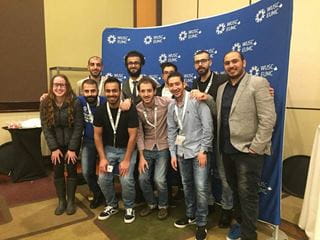
The Perfect Spore? How mushrooms could eliminate plastic waste from Sheridan’s chemistry labs
 by Jon Kuiperij – Nov 27, 2023
by Jon Kuiperij – Nov 27, 2023 The jury is still out on whether mushrooms belong in chili or on pizza. One place the polarizing fungi is undisputedly welcome these days, however, is in the research lab at Sheridan's Centre for Advanced Manufacturing and Design Technologies (CAMDT).
That's because mushrooms — namely of the oyster variety — could eventually be used to break down single-use plastics discarded from Sheridan's chemistry labs and advance the institution's efforts toward becoming a zero-waste campus.
Supported by $10,000 in funding through Sheridan's Generator Growth Grant program, chemical and environmental engineering professor Genevieve Kenny is in the early stages of a research project that simulates mushrooms' natural growing environment while measuring how quickly the fungi can degrade low density polyethylene (LDPE) plastic pipettes. "We're hoping the mushrooms can break down a pipette in a two-week period, and we're trying to determine how many mushrooms it would take to accomplish that," says Kenny, estimating that Sheridan's chemistry labs use several hundred small LDPE plastic pipettes per week to transfer liquids from one place to another. "Ideally, we could scale it to the point where we naturally eliminate all of that plastic waste."
“We're trying to get this to work in a local sense, bringing practicality to the research that has already been done.”
– Genevieve Kenny
Kenny's study builds on previous findings that certain types of mushrooms are capable of eliminating non-biodegradables such as hydrocarbons, plastics, unrefined oil and even nuclear waste through mycoremediation, the use of microorganisms to break down contaminants by using them as a food source. In fact, a 2014 study led by Mexico City professor and researcher Rosa Maria Espinosa-Valdemar found mushrooms could degrade disposable diapers — which can last in landfills for hundreds of years — by up to 80% in less than four months. "We're trying to get this to work in a local sense, bringing practicality to the research that has already been done," Kenny says.

The experimental setup in CAMDT consists of six containers housed in an enclosure that allows for the creation of humidity, air flow and carbon dioxide levels commonly found in landfill sites and other real-world environments. The containers are initially filled with sterilized straw for the mushrooms to feed on, and the straw is gradually replaced by the plastic pipettes to train the mushrooms to feed on the latter material.
Prior to teaching at Sheridan, Kenny worked for a consulting engineering firm on wastewater and environmental projects, specialized in energy and water reduction projects as a sugar refinery process engineer, and worked in Research and Development for corn ethanol wastewater treatment and energy recovery processes. Her interest in scientific applications of mushrooms was piqued during the COVID-19 pandemic, observing the fungi during family walks near her Algonquin Park-area cottage. "I'm not a biologist, but I love looking at nature from a practical engineering side to solve a problem," she says. "I'm also interested in alternative energy such as harnessing methane gases found in wastewater to generate energy and get us off fossil fuels."
The Generator Growth Grant funding covers the cost of materials and also enabled Kenny to hire several student research assistants, who have gained valuable hands-on experience designing, constructing and monitoring the mushroom growth chamber. Kenny shared the study's early findings at this fall's Generator at Sheridan Annual Showcase and hopes to secure an industry partner who could unlock further funding opportunities.
"It would be impossible to find an industry partner for a project like this without doing any preliminary research first. The Generator Growth Grant has allowed us to do that with an idea that was pretty whacky but was also grounded in science," says Kenny. "I have to pinch myself sometimes that I get to do this. It's really easy to motivate yourself when you're working on stuff that feels meaningful, and I find that's true for the students as well."
Media Contact
For media inquiries, contact Sheridan’s Communications and Public Relations team.




